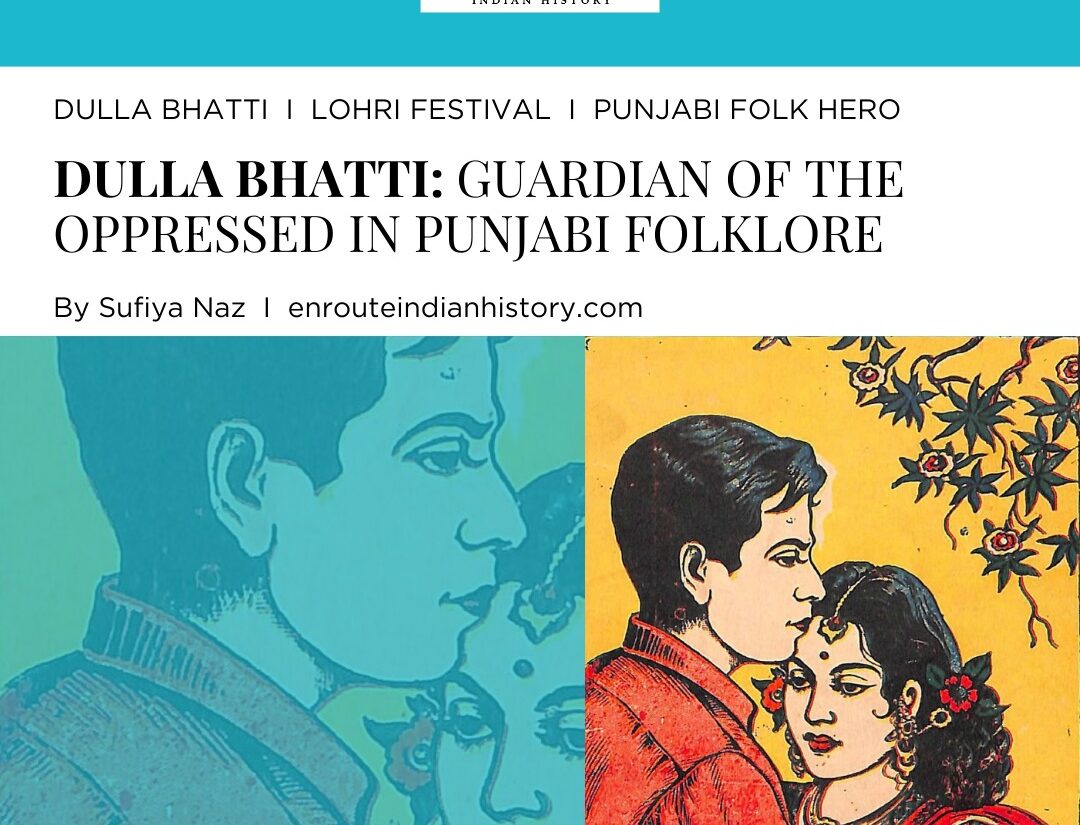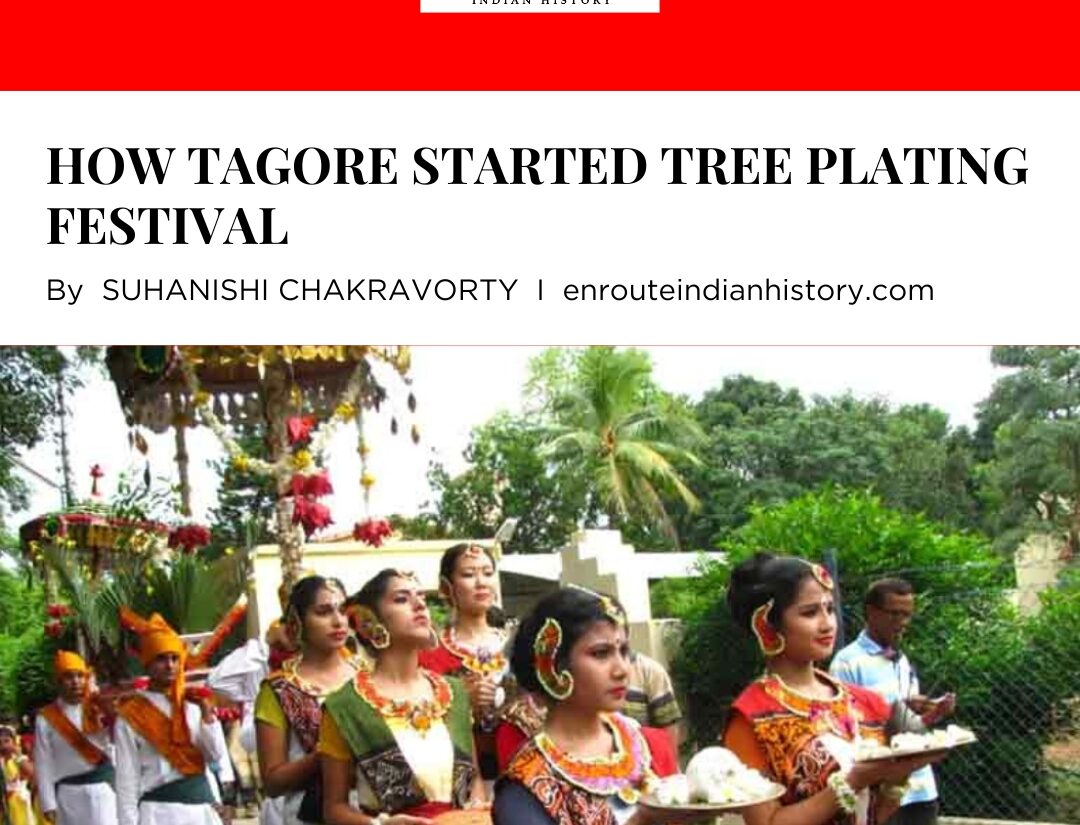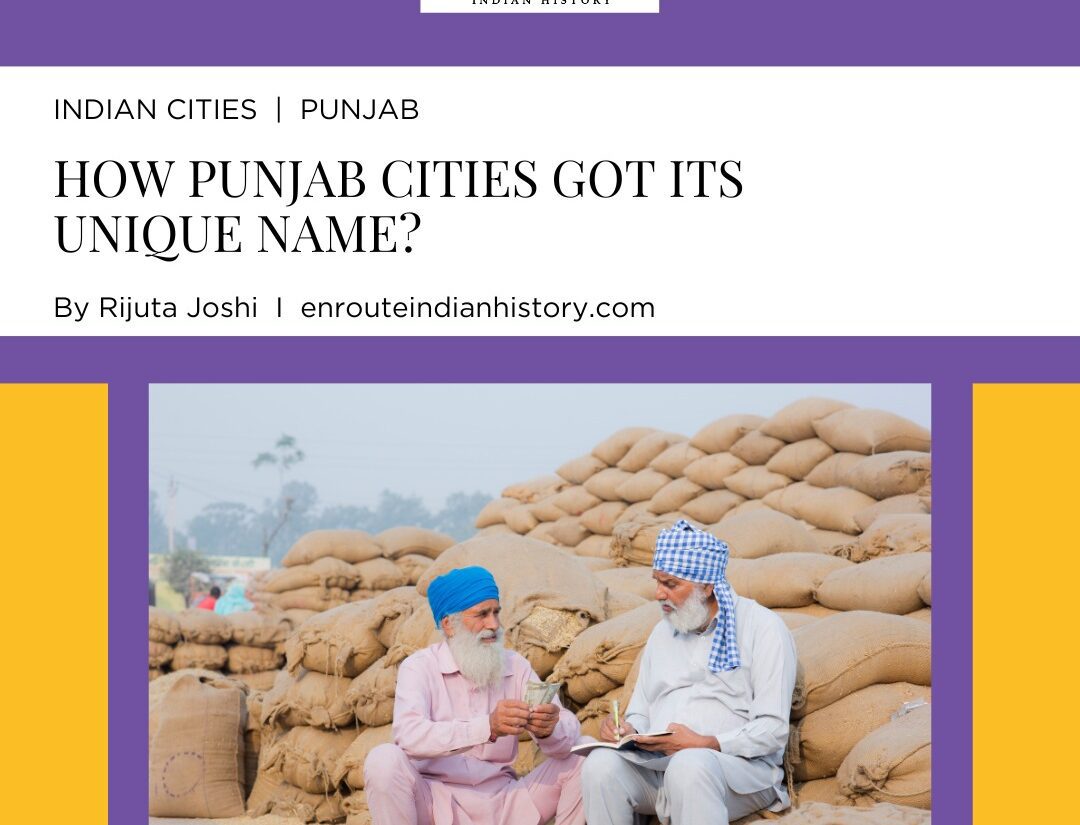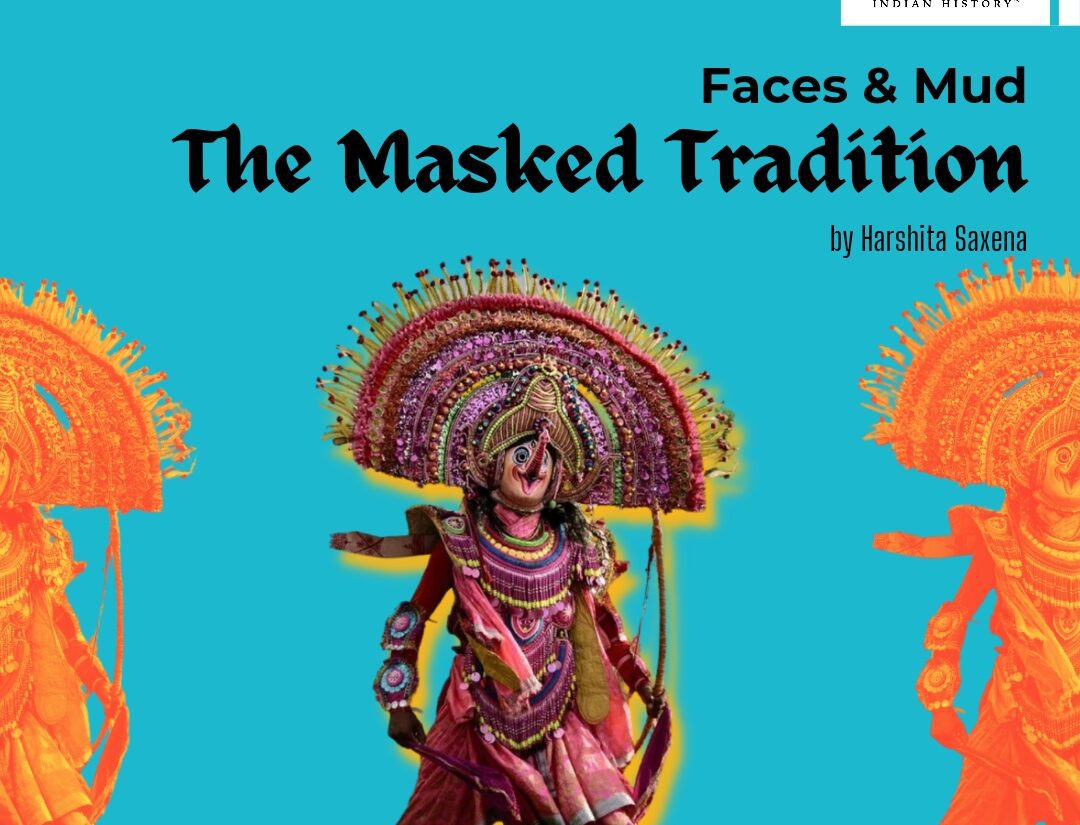Dulla Bhatti: Guardian of the Oppressed in Punjabi Folklore
- EIH User
- January 17, 2024

Legendary tales often feature a hero whose character seems lifted from the pages of a cinematic script – a righteous and fearless figure who defies authority to protect the people. While it may appear too fantastical to be real, these legends and narratives find their roots in historical anecdotes. Passed down through the ages, these anecdotes morph into traditions, stories, rituals, and beliefs, creating a rich tapestry that weaves together the essence of cultures. Among these mythical heroes, Abdullah Bhatti, affectionately known as Dulla Bhatti, stands as a testament to the heroic ethos of sixteenth-century Punjab. Long before his life found its way into the written annals by the pens of renowned Punjabi writers, Dulla Bhatti’s legacy resonated through the mesmerizing tunes of Dhadis, the ballad singers who preserved his tales. In the rich oral traditions passed down through time, Dulla Bhatti emerged as a legendary figure, embodying the ideals of a righteous champion.
His narrative takes a riveting turn when he defiantly opposes the oppressive tax policies imposed by Emperor Akbar, positioning himself as a revolutionary leader for the disenfranchised working class. His audacious stand against injustice and exploitation transformed him into a beacon of hope and resilience among the local community. Raised alongside Prince Salim, he eschewed the trappings of royal privilege, carving a niche for himself through acts of bravery and an unwavering commitment to social justice. Yet, like any compelling legend, Dulla Bhatti remains a figure wrapped in controversy. Court historians, perhaps influenced by the lens of power, painted him as a bandit and a rebellious chieftain. However, his popularity among the local community, a testament to his charismatic leadership, transcended the confines of historical narratives.
Historical Context
Dulla’s narrative unfolds in the 16th century CE, within the confines of Pindi Bhattian, a village situated 128 km northwest of present-day Lahore, Pakistan. Although Pindi Bhattian was no more than a modest village during this era, its strategic location on the Lahore-North-West Frontier-Kabul route made it significant. The region, once under the rule of local Muslim Bhatti chiefs functioning as autonomous landlords during the Lodi Dynasty, witnessed a transformation as these chiefs united their military forces, establishing a local power hub that liberated them from the Lodi dominion.
The dynamics shifted in the 16th century CE with the emergence of the Mughal Empire under Babur in 1526 CE. Humayun, Babur’s son, expanded the empire, yet Punjab remained under the control of his half-brother Kamran. The tide turned in 1540 CE when Afghan General Sher Shah Suri forced the brothers into exile, seizing power as Emperor. During Suri’s rule, the authority of the Muslim Bhatti chiefs faced little restraint, but the return of Mughal supremacy posed a threat. Upon Humayun’s return from exile in 1555-56 CE, he initiated a campaign to establish Mughal influence in Western Punjab, though some historical accounts attribute this endeavor to Humayun’s son, Emperor Akbar.
However, not everyone yielded to this authority. The Muslim Rajput Bhatti chief of Pindi Bhattian, Bijli Khan, defiantly resisted Mughal rule. In a fierce confrontation, Bijli Khan and his son Farid battled valiantly against the Mughals, ultimately facing defeat and execution. Despite their tragic end, Farid’s legacy endured. Among his descendants, one stood out—an individual destined to challenge the Mughal might and, in doing so, etched his name into the annals of legend. This was Dulla Bhatti.
With time, the legend of Dulla Bhatti expanded, weaving intricate tales around his persona. Some narratives asserted that he shared his birthdate with Prince Salim, Akbar’s eldest son. According to the folklore, seers prophesied to the emperor that Salim would mature into a courageous and robust leader, worthy of inheriting his father’s throne, but only if he was nourished by a Rajput woman who had given birth on the same day as the prince. Ladhi, Dulla Bhatti’s mother, was identified as this auspicious woman, entrusted with the upbringing of both Dulla Bhatti and Prince Salim under the same roof.
Dulla Bhatti’s heroism
Born in Badar village along the banks of the Chenab River in 1547 CE, Dulla’s self-discovery occurred during boyhood while engaged in play with his catapult. Unaware of the tragic fate that has befallen his father and grandfather, he stumbled upon the truth by chance. A seemingly innocuous incident unfolded when Dulla accidentally shattered a village woman’s pitcher with his catapult. Mocked by her, he was urged to channel his courage into avenging the deaths of his forebears. In seeking clarity from his mother, Dulla learned the heartbreaking saga and swore an oath of vengeance. Following this, Dulla’s mother was compelled to open the room where she had safeguarded the weapons wielded by his father and grandfather. Dulla proceeded to distribute these weapons among his associates, initiating a rebellion to avenge the injustices suffered by his father and grandfather.
Amidst this, the political landscape was transforming as Akbar sought to consolidate the Mughal Empire. In 1580 CE, Akbar implemented the zabti taxation system across the empire, including Punjab, curtailing the influence of local chieftains. Concurrently, a Mughal administrator, the faujdar, was appointed to collaborate with Zamindars for tax collection and development projects. This system posed a threat to the autonomy of zamindars, prompting Dulla to mobilize peasants against imperial authority. Pledging to obstruct Mughal caravans passing through the region, including the vital route linking Mughal India to Central Asia, Dulla became a symbol of resistance.

This is the grave of Dulla Bhatti ( photo by Dawn)
In 1584 CE, Akbar relocated the imperial capital from Fatehpur Sikri to Lahore, strategically distancing himself from potential disturbances in Kabul and Punjab. Dulla labeled a ‘social bandit’ akin to a Punjabi Robin Hood, disrupted imperial officials, looting their treasures to distribute among the oppressed peasants. His leadership and charisma galvanized the beleaguered peasants, turning him into a folk hero. Legends recount instances where Dulla exhibited audacity, allegedly ‘humbling’ Akbar and Prince Salim, the future Emperor Jahangir. In a captivating episode, Prince Salim, inadvertently trespassing into Dulla’s territory during a hunt, was released by Dulla, who declared his conflict was with the Emperor, not his son. In yet another tale, there is an account of Dulla and his soldiers capturing Emperor Akbar during a hunting expedition. Allegedly, Akbar cleverly secured his freedom by masquerading as the emperor’s fool. Though Dulla recognized the captive as the emperor, he chose to release him, acknowledging that Akbar had humbled himself by assuming the role of a fool and pleading for mercy.
The immortal impact on culture

Lohri folk songs about Dulla Bhatti ( photo by NDTV)
In a poignant Punjabi folktale, a destitute Brahman once grappled with the plight of his two daughters, Sundri and Mundri, who were promised in marriage. However, the local landlord harbored intentions of marrying them himself. Recognizing the potential threat, the desperate Brahman implored the in-laws of the betrothed sisters to expedite their marriages and take them away from the clutches of the landlord. Fearing the powerful landlord, the in-laws hesitated, refusing the Brahman’s plea. It was at this juncture that Dulla Bhatti intervened, earning the moniker of the girls’ godfather in the folk narrative. Dulla Bhatti, demonstrating his valor and commitment to justice, facilitated the marriage of the Brahman’s daughters to their respective betrothed grooms. This act of benevolence etched Dulla Bhatti’s legend as a guardian of honor and defender of the vulnerable in the annals of Punjabi folklore. The legacy of this tale lives on through the traditional Punjabi folk song “Sundri-Mundri,” echoing through the festive air during Lohri celebrations. As people gather around bonfires, sharing sweets and reveling in song and dance, the narrative of Dulla Bhatti’s heroism resonates in the lyrics that go by:
“Sunder mundriye ho
Tera kaun vicharaa ho
Dulla Bhatti walla ho
Dullhe di dhee vyayae ho…”
(Oh beautiful Mundri
Who will save you, the poor one
Dulla Bhatti is here for you
The Dulla married off his daughter)
In the pre-Partition era, Dulla Bhatti emerged as a symbol of unity, transcending religious boundaries as a Muslim landlord who valiantly safeguarded the honor of Brahmin girls against the Mughal emperor. On Lohri, a festival marking the culmination of the harsh winter, the echoes of Dulla Bhatti’s bravery reverberated through the voices of Hindus, Sikhs, and Muslims alike. However, with the gradual decline of indigenous festivals in West Punjab, Lohri’s vibrant celebration waned, and along with it, the prominence of Dulla Bhatti’s legend began to fade. Today, the tales and songs recounting his exploits are sporadically reminisced by wanderers who chance upon his resting place in Lahore, once the illustrious capital of the formidable Mughal Empire.
The execution
Certain accounts recount that Shah Hussain stood near the Delhi Darwaza when Dulla Bhatti faced execution orchestrated by the kotwal (police chief) under the Mughal emperor’s directives. There is a suggestion that Shah Hussain held an appreciation for Dulla Bhatti’s armed resistance against Mughal authority. It is in honor of Dulla Bhatti that Shah Hussain is believed to have uttered the line:
“Kahay Hussain Faqeer Sain Da Takht Na Milday Mungay.” (Says this lowly faqir, thrones are not gained by merely asking)
Having witnessed the rebel’s torture and execution, Shah Hussain is said to have placed a curse on the Kotwal, Ali Malik. Intriguingly, Malik faced swift retribution later that day, being executed on Akbar’s orders for recalling Dulla Bhatti’s final words in the emperor’s presence. These words included abusive remarks directed at Akbar. In Najm Hosain Syed’s play “Takhat Lahore,” Shah Husain is depicted as Dulla Bhatti’s closest confidante. Najm further strengthens Shah Husain’s non-conformist persona in analytical essays like ‘Dulla di Kahani’ and ‘Bhajar Takhat Lahore,’ portraying him as a counterpart to Dulla Bhatti, challenging Mughal imperialism from within.
In the tapestry of legendary tales, Dulla Bhatti emerges as a heroic figure, transcending the boundaries of folklore to embody the spirit of resistance and justice in sixteenth-century Punjab. His defiance against Emperor Akbar’s oppressive tax policies and his commitment to social justice elevated him to the status of a folk hero. The legends surrounding Dulla Bhatti, whether recounting his audacious encounters with Akbar and Prince Salim or his benevolent intervention in the plight of Brahmin girls, weave a narrative that resonates through time. Today, his unassuming grave in the Miani Sahib graveyard stands as a quiet testament to the enduring legacy of a man who, in the face of imperial might, became a symbol of unity and valor. As the echoes of his exploits fade into sporadic recollections, the tale of Dulla Bhatti remains a poignant chapter in the cultural heritage of Punjab—a chapter that speaks of resilience, justice, and the enduring power of a hero’s legacy.
Reference
- Kochhar, Aashish. “Lohri: The Legend of Dulla Bhatti.” PeepulTree, 13 Jan. 2022, www.peepultree.world/livehistoryindia/story/living-culture/lohri-the-legend-of-dulla-bhatti.
- Abbas, Mazhar. “Punjab’s Own Robin Hood.” Wwwgcuf, Jan. 2020, www.academia.edu/43221309/Punjabs_own_Robin_Hood.
- Khalid, Haroon. “On Lohri, Remembering Dulla Bhatti, the Landlord Who Stood up to the Mighty Akbar.” Scroll. in, 12 Jan. 2018, scroll. in/article/864736/why-dulla-bhatti-the-landlord-who-stood-up-to-the-mighty-akbar-is-still-remembered-on-lohri.
- January 17, 2024
- 12 Min Read






















